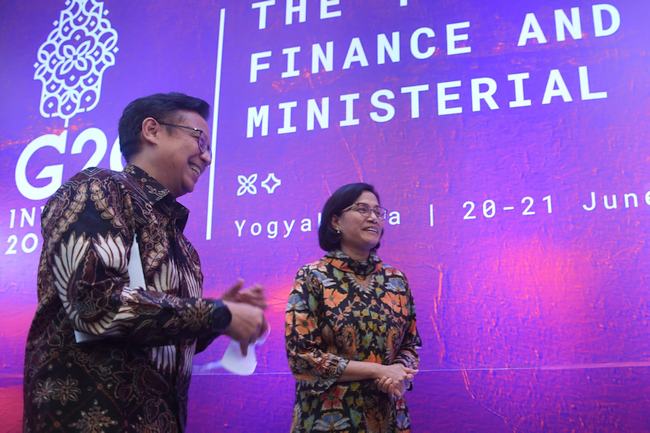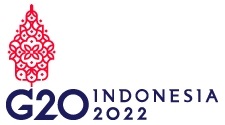The G20 members and several relevant international organizations agreed to work together to create the Financial Intermediary Fund (FIF) to help countries in need to face any pandemic in the future.

During the 1st G20 Joint Finance and Health Ministerial Meeting held in Yogyakarta on Tuesday, Indonesian Finance Minister Sri Mulyani emphasized the urgency for collaborative work between health and finance sectors to better prepared for future pandemics, considering that the COVID-19 would not be the last.
“The world is definitely watching us – how the G20 is going to respond with delivering concrete action in pandemic preparedness and response. The world is waiting for us,” Mulyani remarked.
Furthermore, she also asserted the importance of inclusivity in the work of FIF, led together by the World Health Organization (WHO) and the World Bank, which required the involvement of both developed and developing countries.
“Only then, we can be effective in preparing to tackle the next global pandemic together,” Mulyani stated.
“I would like to acknowledge the central role of the WHO in fighting pandemic and the importance of including the voice of developing countries in our institutional arrangement to create the most effective system for pandemic preparedness and response,” she added.
The WHO and the World Bank estimated that US$31 billion is required annually for strengthening global health security, according to WHO Director General Tedros Adhanom Ghebreyesus.
About two-third of that fund could come from existing resources but that leaves a gap of US$10 billion per year. Hence, he expects that the FIF would help close that gap.
WHO and the World Bank have been cooperating to establish the FIF, which would be overseen by a board that takes a decision on funding allocation supported by a technical advisory panel.
Both the board and the technical advisory panel would be supported by the joint WHO-WB secretariat based at the Bank’s headquarters in Washington, with assisting staff from the WHO.
According to the plan, the Bank will provide financial and administrative leadership at the secretariat, operate as a representative for the FIF, hold and transfer relief funds, as well as provide administrative services.
Meanwhile, the WHO will provide technical leadership; coordinate input for the technical advisory panel; and prepare relevant technical documentation, recommendations, and reports for the council.
Both the World Bank and WHO will act as implementing entities, along with other global health partners with relevant expertise, including the Global Fund, the Global Alliance for Vaccines and Immunization (GAVI), and the Coalition for Epidemic Preparedness Innovations (CEPI).
“We look forward to your active participation in building and financing a FIF that is inclusive, equitable, and effective in making our world safer from pandemics,” Tedros noted.
To date, the G20 has pushed for an emergency fundraising commitment of around US$1.1 billion from five member countries and one international social organization to mobilize the role of FIF.
The pledges came from the United States, the European Union, Germany, Indonesia, Singapore, and the Wellcome Trust.
Additionally, Indonesian Health Minister Budi Gunadi Sadikin stated the meeting was not only focusing on the FIF as the source of funds to face future pandemics, but the world must also think about the uses of funds.
“Because money is (only) half the solution for the health crisis. We need to translate this money into access to vaccines, medicines, and diagnostic tools,” he said at a press conference after the joint ministerial meeting.
In order to create such access, he explained, the engagement with private sectors as the producers of vaccines, therapeutics, and diagnostics was crucial.
“We need to talk to them, to engage with them. How can they maintain a certain volume commitment? How then we will be able to distribute equally and very quickly if the next pandemic happens?” he noted.
The establishment of FIF is still in the ongoing discussion that will be continued at the next G20 meetings, hosted this year by Indonesia.
However, as the G20 President, Indonesia will continue to gather as much as possible support from more countries as well as an international organization even philanthropists, in order for them to be able to contribute to the financing side of pandemic preparedness and response.
Written by: Yashinta Difa Pramudyani, Editor: Fardah Assegaf (c) ANTARA 2022
















